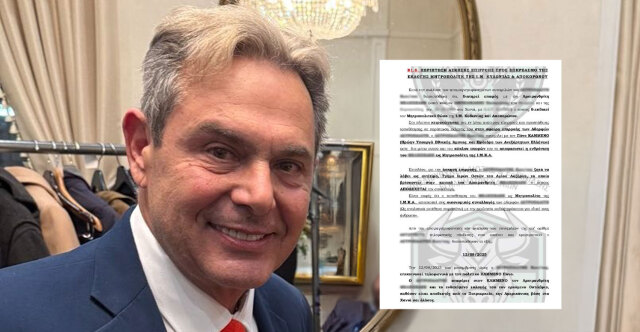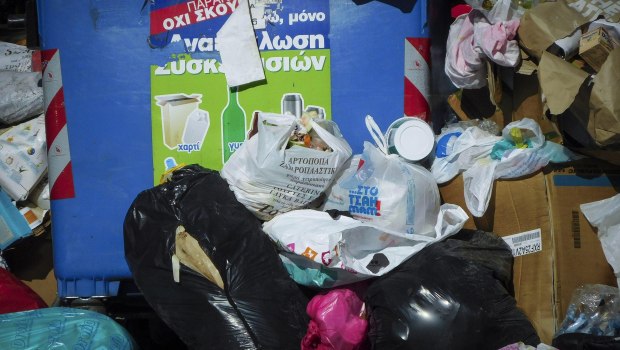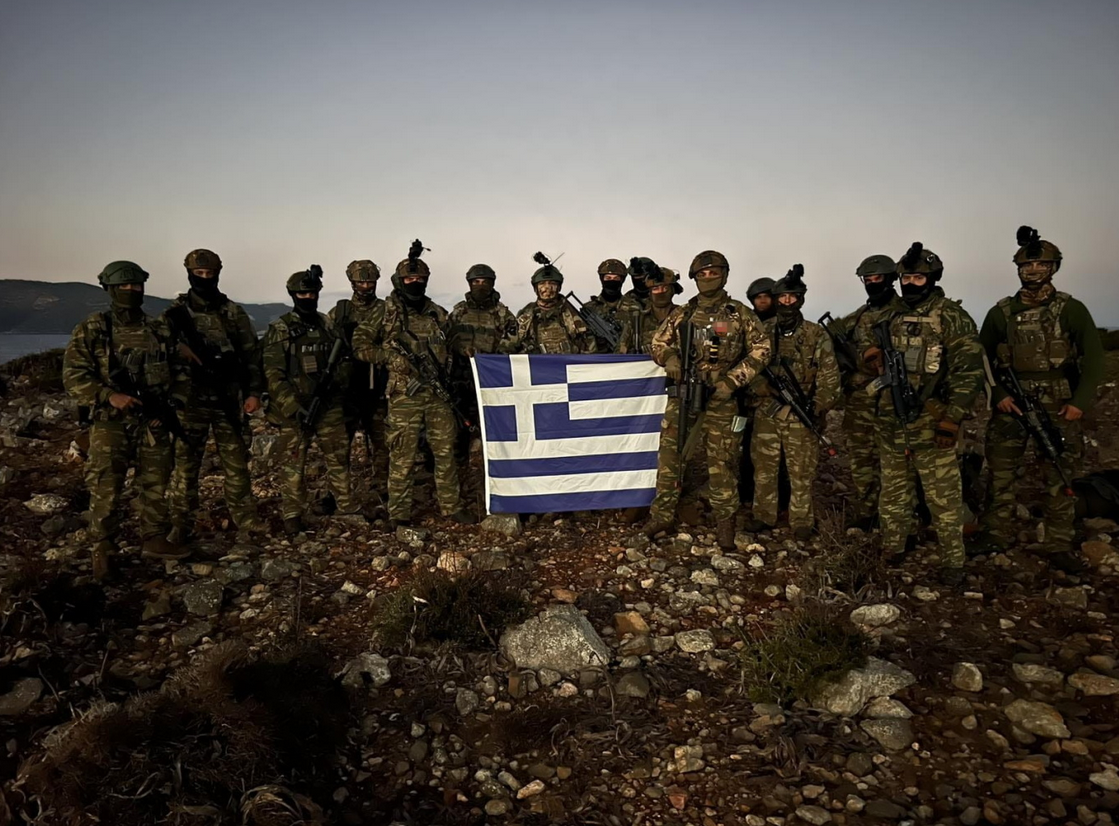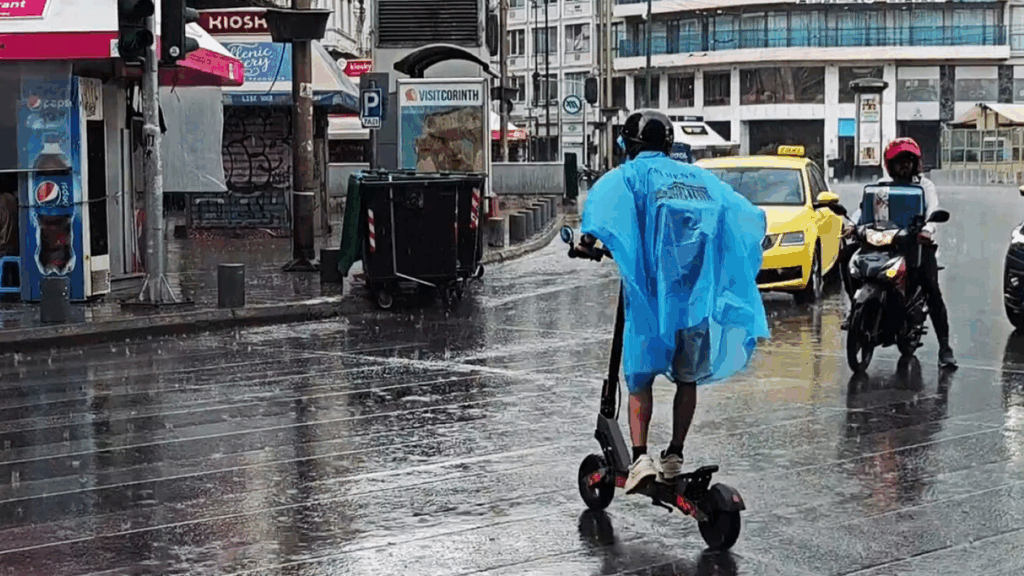NATO and EU express concern over violation of Estonian airspace, Trump warns of “big probl
Source: ProtoThema English
The Russian Ministry of Defense today denied the allegation that three of its fighter jets violated Estonian airspace after being intercepted by NATO aircraft on Friday.
“On September 19 (…) three Russian MiG-31 fighters carried out a scheduled flight from Karelia to an airfield in the Kaliningrad region,” a Russian enclave between Lithuania and Poland, the ministry stated via Telegram.
“The flight was conducted in strict compliance with international rules for the use of airspace, without violating the borders of other states, as confirmed by airspace control systems,” it added.
“During the flight, the Russian aircraft did not deviate from the designated flight plan and did not violate Estonian airspace,” it assured.
https://t.co/qrePPULuGv pic.twitter.com/oenJRdQNtY
— SHAPE – NATO Allied Command Operations (@SHAPE_NATO) September 19, 2025
According to the same source, the aircraft flew over “neutral (i.e., international) waters of the Baltic Sea and more than three kilometers away from the Estonian island of Vaindloo” in the Gulf of Finland.
The Baltic country said on Friday that three Russian fighters carried out an “unprecedentedly brazen” violation of its airspace and added that it had asked NATO, of which it is a member state, to invoke Article 4 of the North Atlantic Treaty, the Alliance’s founding document, which calls for consultations in the event of a threat against a member state.
Estonia and NATO confirm the violation
According to the Estonian Foreign Ministry and a NATO spokesperson, the Alliance intercepted three Russian aircraft that violated its airspace on Friday.
Three Russian MiG-31 fighters entered Estonian airspace over the Gulf of Finland without authorization and remained there for a total of 12 minutes, the Estonian Foreign Ministry reported.
Italian F-35 fighters stationed in Estonia under NATO’s Eastern Sentry mission, along with Swedish and Finnish aircraft, responded to the incursion, according to NATO’s Allied Operations Command.
Estonian Prime Minister Kristeen Mihal said that the Russian planes were then “forced to leave.”
The Swedish military later published photos on Friday evening that it said showed a Russian fighter jet over the Baltic Sea after it had left Estonian airspace.
Rising tensions with NATO members
The incident comes amid increasingly tense relations between Russia and NATO countries.
Last week, about 20 Russian drones entered Polish airspace, three of which, according to Warsaw, were shot down by Polish and Dutch F-35 fighters—an unprecedented event since NATO’s founding in 1949. Days later, Romania reported its own airspace violation by a Russian drone.
Trump: Incident “could cause big problems”
Trump also commented on the incident during a White House press conference, saying he would “take a look” at the reports.
After noting he would be briefed on the incursion, he added: “Well, I don’t like it. I don’t like when that happens. It could be a big problem.”
European Commission President Ursula von der Leyen also declared: “We will respond to every provocation with determination, while investing in a stronger eastern flank.”
She added: “As threats escalate, so too will our pressure,” before urging European leaders to approve a new round of sanctions banning Russian liquefied natural gas.
NATO to convene North Atlantic Council next week – EU condemns
The Estonian prime minister announced that his country would ask NATO to invoke Article 4 of the North Atlantic Treaty, which provides for consultations among allies in the event of a threat to a member, following the incursion of three Russian aircraft into its airspace.
“Such a violation is completely unacceptable. The Estonian government has decided to request consultations under Article 4 of NATO regarding the violation of its airspace by Russian fighter jets,” Prime Minister Kristeen Mihal wrote on X.
NATO Secretary-General Mark Rutte welcomed the “swift and decisive” response after the Russian incursion. “NATO’s response was quick and resolute,” he wrote on X, noting he had spoken by phone with Mihal.
NATO spokesperson Alison Hart stated that the North Atlantic Council will convene early next week to discuss the incident in more detail, at Estonia’s request for Article 4 consultations.
European Union leaders will also discuss their “collective response” to Russia’s violations of EU airspace at the upcoming October 1 summit in Copenhagen, said European Council President Antonio Costa.
“Today’s violation of Estonian airspace by three Russian fighter jets is yet another unacceptable provocation,” Costa posted on X. “It underscores once again the urgent need to strengthen our eastern flank, deepen European defense cooperation, and intensify pressure on Russia.”
EU foreign policy chief Kaja Kallas called the violation a “very dangerous provocation.”
“This marks the third similar violation of EU airspace in just a few days and further escalates tensions in the region,” Kallas wrote on X. “We will continue to support our member states in strengthening their defenses with European resources. Putin is testing the West’s resolve. We must not show weakness.”
Ukraine also denounced Russia’s “escalation” after NATO fighters intercepted three MiG-31s that had entered Estonian airspace. “The incursion is a new escalation by Russia and a direct threat to transatlantic security,” Ukrainian Foreign Minister Andrii Sybiha wrote on X. “As long as it does not face a truly strong response, (Russia) will only grow more arrogant and aggressive.”
Greece’s Foreign Ministry unequivocally condemned the violation of Estonian airspace, expressed solidarity with Estonia, and stressed that any violation of state borders constitutes “a clear breach of international law” and is unacceptable to Greece.
Germany’s Foreign Minister Johann Vandeful said NATO is always ready to defend itself after the interception of Russian planes that, according to Estonia, violated its airspace in a “brazen” incursion. “By immediately intercepting the Russian aircraft, we prove NATO is always ready to defend itself,” he wrote on X.
France, which maintains military forces including fighter jets based in Estonia, called the incursion a blatant violation of international law. “This intrusion into Estonia is unprecedented in more than 20 years,” the French Foreign Ministry declared.
UK Defense Secretary John Healey said the violation was the latest reckless and dangerous Russian activity in recent days. “Putin’s aggression only serves to strengthen NATO’s unity and our determination to stand by Ukraine,” he wrote on X.
What invoking NATO’s Article 4 means
According to the 1949 Washington Treaty, Article 4 grants any member state the right to request consultations with its allies if it believes its territorial integrity, political independence, or security is threatened.
It does not entail automatic military action but brings the issue before the North Atlantic Council, which can decide on diplomatic, military, or deterrent measures.
Article 4 is often seen as a “warning bell” preceding potential developments. Unlike Article 5, which mandates collective defense in case of an attack on a member state, Article 4 remains at the level of political consultation—yet carries weight as it opens the discussion across the Alliance.
Since NATO’s founding, Article 4 has only been invoked eight times, highlighting the exceptional nature of the process:
- 2003 – Turkey: Concern over border security during the Iraq war; NATO strengthened Turkey’s air defenses.
- 2012 – Turkey: After Syria shot down a Turkish fighter jet.
- 2014 – Poland, Estonia, Latvia, Lithuania: Following Russia’s annexation of Crimea.
- 2015 – Turkey: Over instability in Syria, terrorism, and security threats.
- 2020 – Turkey: After escalation in Idlib, Syria, hours after dozens of Turkish soldiers were killed in an airstrike.
- 2022 – Poland: Following Russia’s invasion of Ukraine.
- 2022 – Slovakia, Hungary, Bulgaria, Romania: Due to worsening security in Ukraine.
- 2025 – Poland: After Russian drones entered its airspace.
Ask me anything
Explore related questions
The original article: belongs to ProtoThema English .




